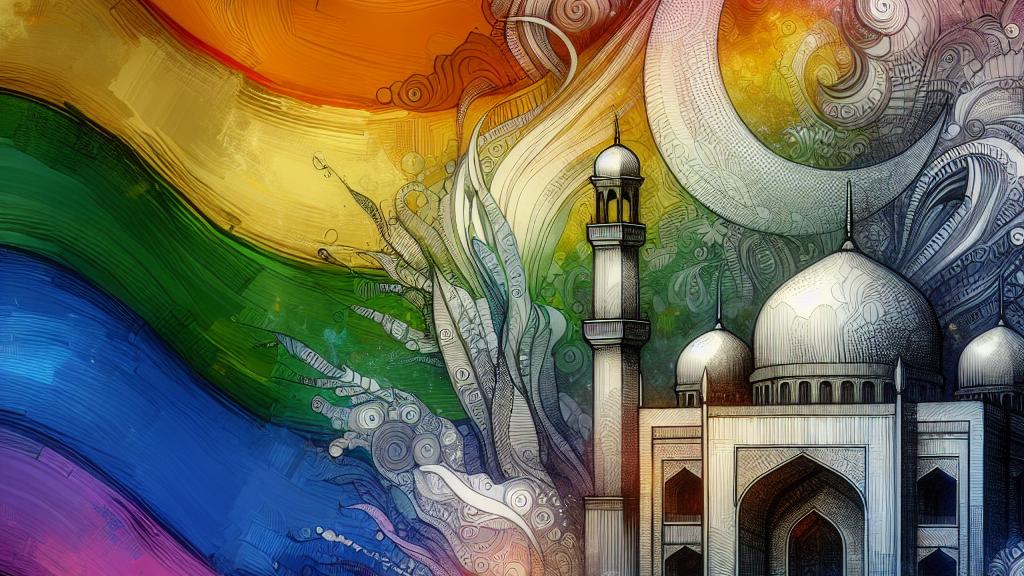Searching for Answers: The Impact of Muhsin Hendricks' Life and Death
Overview
- Muhsin Hendricks was a groundbreaking figure, advocating for LGBTQ+ rights within the Muslim community and beyond.
- His tragic murder raises critical discussions about safety and acceptance for LGBTQ+ individuals in South Africa.
- The ongoing investigation highlights an urgent call for society to address hate crimes and support marginalized communities.

A Trailblazer for LGBTQ+ Muslims
Muhsin Hendricks was not just the first openly gay imam; he was a pioneer who appointed himself as a voice for LGBTQ+ Muslims in a world that often silenced them. Coming out in 1996, he took a monumental stand against a backdrop of homophobia within the South African Muslim community, challenging long-standing traditions. His creation of The Inner Circle was a game-changer, offering a safe space for queer Muslims striving to harmonize their faith with their sexuality. In addition to this, he founded the Masjidul Ghurbaah mosque, which became a sanctuary of acceptance, inspiring hope and courage among individuals who felt ostracized and alone. Hendricks didn’t just provide support; he sparked critical dialogues about love, faith, and inclusion—an effort to ensure that being true to oneself was celebrated rather than condemned.
A Death That Shook a Community
The heartbreaking news of Hendricks' assassination sent ripples of shock and despair across South Africa and the world. He was killed in a brutal attack shortly after officiating a lesbian wedding, a tragedy that raised crucial questions: Could this be a hate crime? Advocacy groups and activists are urgently calling for a thorough investigation, ensuring that the motives behind his death are appropriately addressed. Despite South Africa's progressive legal framework, being one of the first countries worldwide to legalize same-sex marriage, the stark reality remains that LGBTQ+ individuals confront violence and discrimination daily. Hendricks' tragic death serves as a grim reminder that legal rights alone cannot shield marginalized communities from societal hatred. This incident has ignited a collective resolve to confront these issues head-on and advocate for a future where love and acceptance prevail.
Reflections on a Life Cut Short
In reflecting on the life of Muhsin Hendricks, it becomes painfully clear that he was more than just a community leader; he was a source of inspiration who touched countless lives. Many viewed him as a beacon of hope, especially for LGBTQ+ Muslims in conservative areas, where just being oneself can come with dire consequences. Hendricks fervently advocated for interfaith dialogue, consistently emphasizing that religion should foster love and acceptance instead of division and rejection. He challenged everyone to rethink their beliefs, proclaiming that faith could and should be a source of inclusivity. His powerful legacy urges us to confront our biases and embrace a spirit of compassion and understanding, inspiring a movement towards a future where everyone, regardless of their identity, can live authentically and without fear.

Loading...